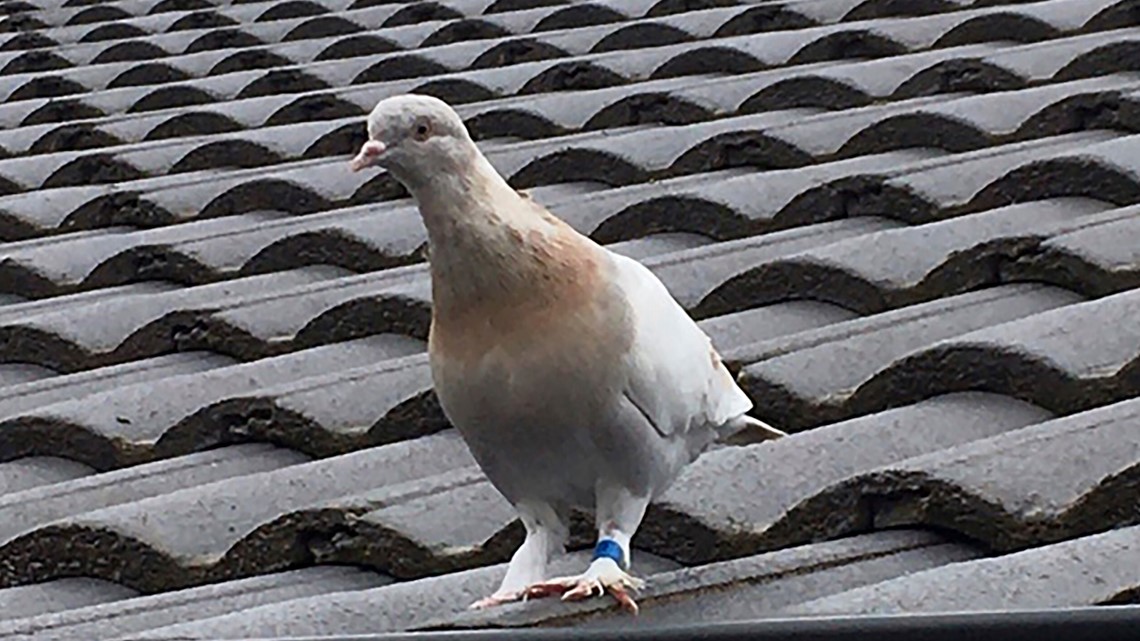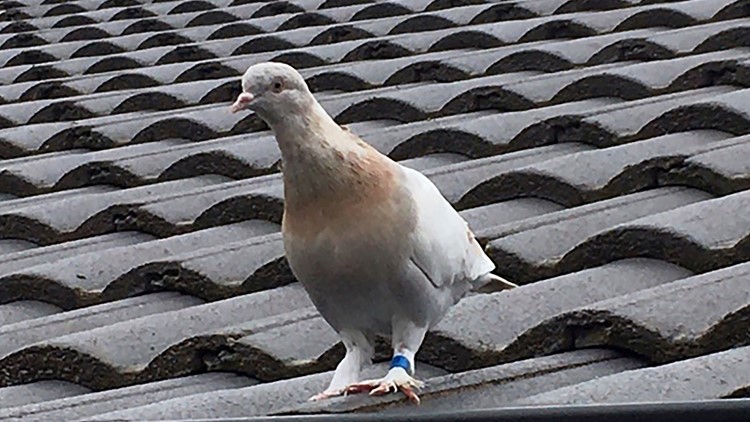CANBERRA, Australian Capital Territory — A pigeon that Australia declared a biosecurity risk may get a reprieve after a U.S. bird organization declared its identifying leg band was fake.
The band suggested the bird found in a Melbourne backyard on Dec. 26 was a racing pigeon that had left the U.S. state of Oregon, 3,000 kilometers (8,000 miles) away, two months earlier.
On that basis, Australian authorities said on Thursday they considered the bird a disease risk and planned to kill it.
But Deone Roberts, sport development manager for the Oklahoma-based American Racing Pigeon Union, said the band was fake.
The band number belongs to a blue bar pigeon in the United States and that is not the bird pictured in Australia, she said.
“The bird band in Australia is counterfeit and not traceable,” Roberts said. “It definitely has a home in Australia and not the U.S.”
“Somebody needs to look at that band and then understand that the bird is not from the U.S. They do not need to kill him,” she added.
Counterfeiting bird bands is “happening more and more,” Roberts said. “People coming into the hobby unknowingly buy that."


Pigeon racing has seen a resurgence in popularity, and some birds have become quite valuable. A Chinese pigeon racing fan put down a record price of 1.6 million euros ($1.9 million) in November for a Belgian-bred pigeon.
Australia's Agriculture Department did not immediately say Friday whether the fake leg band changed its plans to kill the bird.
The department said on Thursday the pigeon was “not permitted to remain in Australia” because it “could compromise Australia’s food security and our wild bird populations.”
“It poses a direct biosecurity risk to Australian bird life and our poultry industry,” a department statement said.
Melbourne resident Kevin Celli-Bird, who found the emaciated bird in his backyard, was surprised by the development and pleased that the bird he had named Joe, after the U.S. president-elect, might not be destroyed.
“Yeah, I'm happy about that,” Celli-Bird said, referring to news that Joe probably is not a biosecurity threat.
Celli-Bird had contacted the American Racing Pigeon Union to find the bird's owner based on the number on the leg band. The bands have both a number and a symbol, but Celli-Bird didn't remember the symbol and said he can no longer catch the bird since it has recovered from its initial weakness.
The bird spends every day in the backyard, sometimes with a native dove on a pergola. Celli-Bird has been feeding it pigeon food from within days of its arrival. “I think that he just decided that since I’ve given him some food and he’s got a spot to drink, that’s home,” he said.
Australian quarantine authorities are notoriously strict. In 2015, the government threatened to euthanize two Yorkshire terriers, Pistol and Boo, after they were smuggled into the country by Hollywood star Johnny Depp and his ex-wife Amber Heard.
Faced with a 50-hour deadline to leave Australia, the dogs made it out in a chartered jet.


